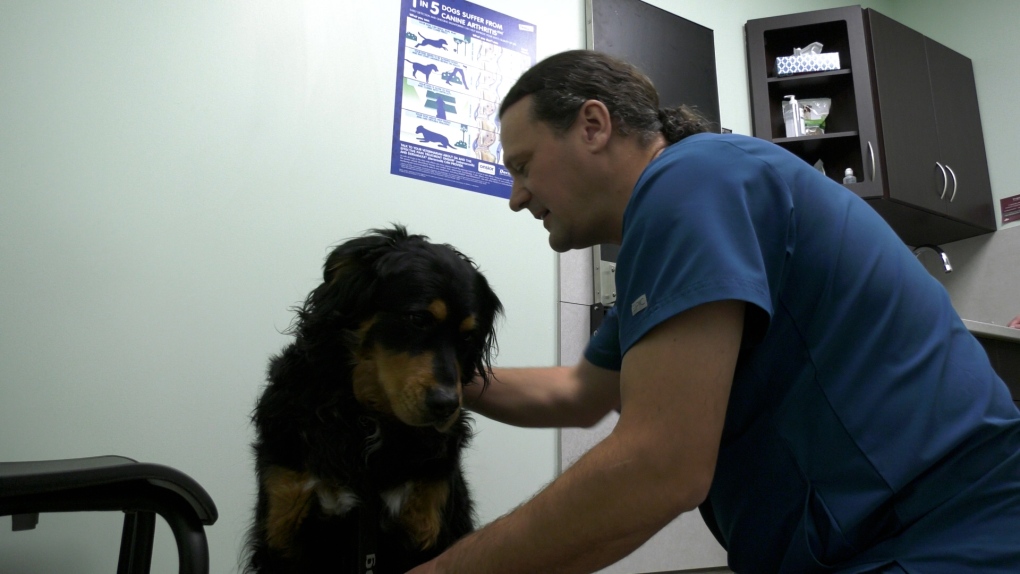Ottawa veterinarian shortage putting pressure on pet care

Veterinary shortages across the country and in Ottawa are having an impact on the ability to access care as prices increase and local animal rescues are feeling the pinch.
“If money’s not coming in and we’re having big price tags, then more cats and dogs are being left behind and that’s a big worry for us,” said Jackie Gauthier, founder of Jackie to the Rescue.
Gauthier works with local animal rescues and says the pressure has never been higher.
Pet ownership is expensive and a veterinarian shortage coupled with increasing vet costs isn’t helping.
“It’s no longer $200, $300, or $400 [to spay or neuter your pet]. It’s now $900. I’ve heard myself and I won’t name the clinic, but between $1,500 and $1,800 for a cat,” said Gauthier.
At the Hamlet Veterinary Hospital in Gloucester, prices have jumped 30 to 40 per cent as COVID-19 put a strain on the system.
“Everything has gone up in cost and because of that most hospitals have had to increase their price significantly,” said veterinarian and owner Dr. Bernard Vincelette.
And it’s not just supplies, veterinarian salaries have gone up as well. Right now, there are 40 open positions in eastern Ontario that are becoming harder to fill and more pandemic pet owners means a care crunch.
“There are a lot of hospitals who aren’t able to take any more patients because they aren’t able to hire any more people for the clientele they already have, so it makes it very difficult,” said Vincelette.
“Profits have not increased; we’re just trying to keep up with salaries and costs of goods just to compensate.”
The Canadian Veterinary Medical Association is calling on the government to invest in more infrastructure to train veterinarians. It is also asking for dedicated funds to recruit internationally.
“That would help us a lot too, in the short term, because even if we start graduating more veterinarians tomorrow, it certainly takes a while for that gap to be covered,” said Dr. Tracy Fisher, vice-president of the Canadian Veterinary Medical Association.
The shortage is estimated to last until at least 2031.
“The vet part is having a big impact on pretty much everybody and the rescues are the one’s out there picking up the pieces unfortunately,” said Gauthier.
View original article here Source









